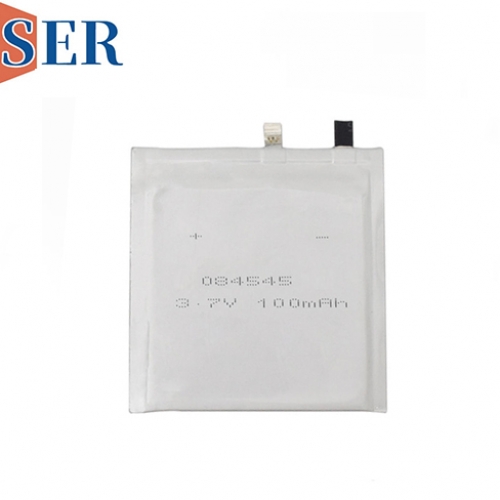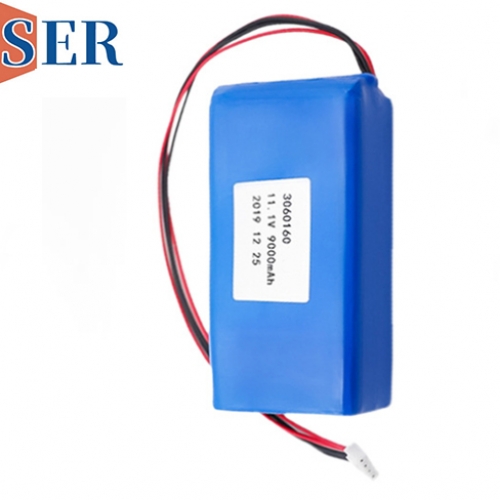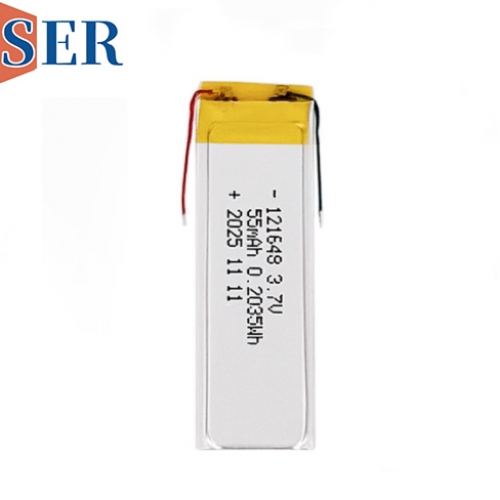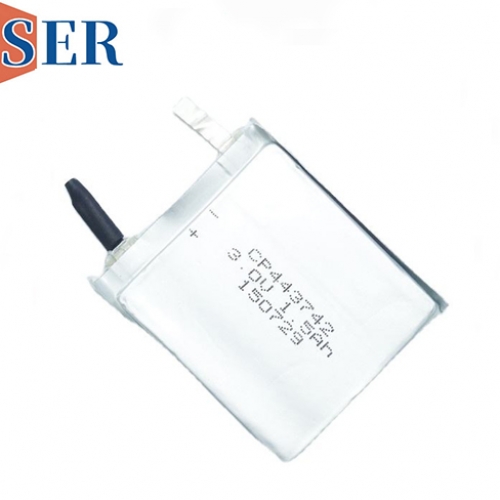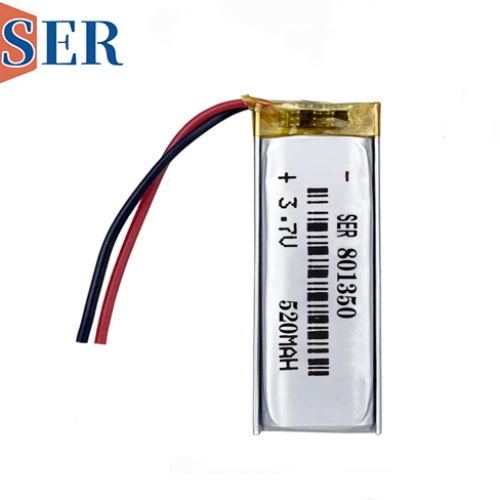Customized Lithium Polymer Batteries for Wearable Devices: The Case of the Smart Bracelet Ring
Customized Lithium Polymer Batteries for Wearable Devices: The Case of the Smart Bracelet Ring
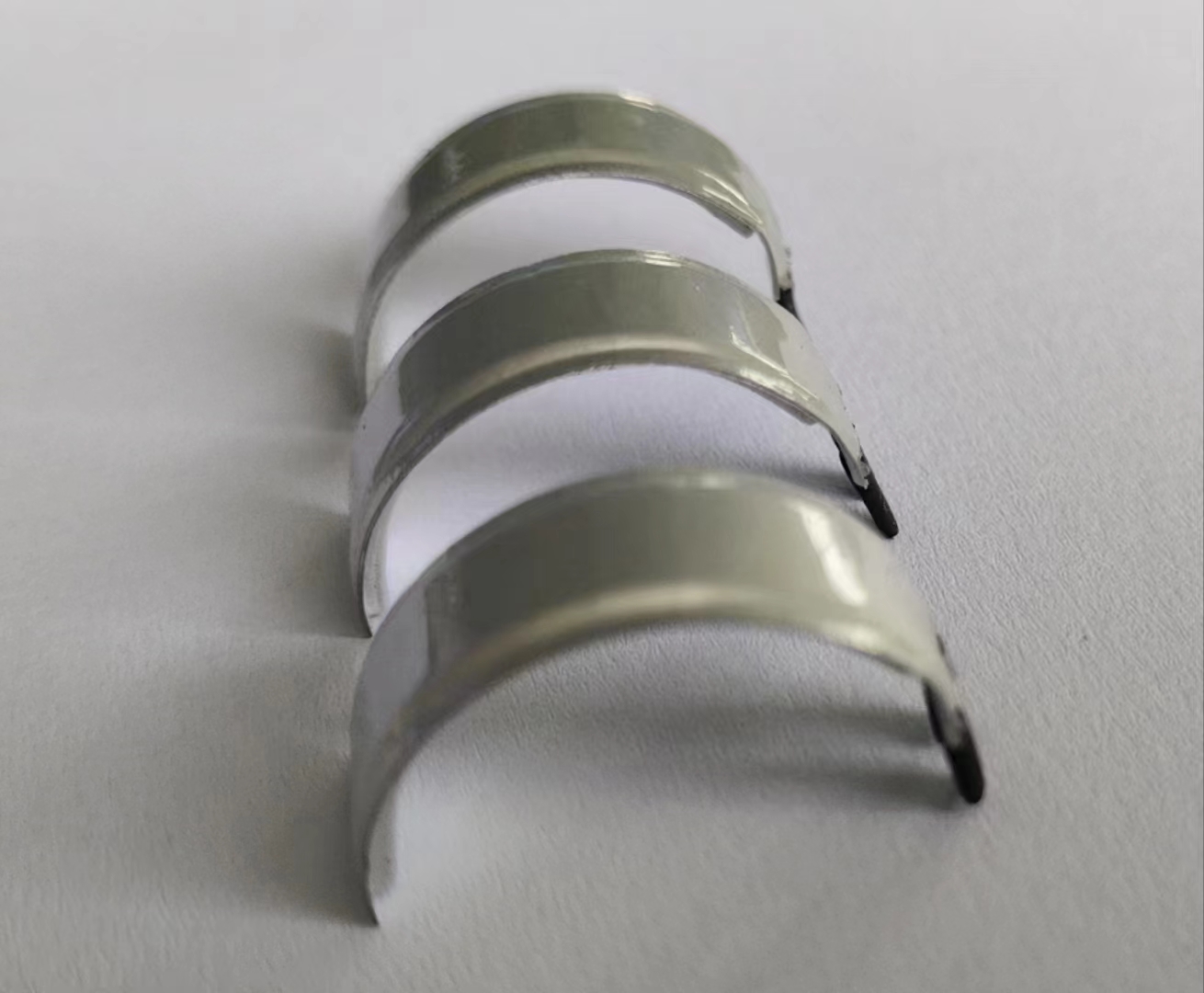
In the rapidly evolving world of wearable technology, the demand for customized, high-performance batteries has grown exponentially. This is particularly true for devices such as smart bracelet rings, which require not only a reliable power source but also a battery that is lightweight, curved to fit the device's design, and ultra-thin to ensure comfort for the wearer. This article explores the nuances of customized lithium polymer (LiPo) batteries, specifically the 3.7V rechargeable 150732 20mAh curved ultra-thin LiPo batteries, and their application in smart bracelet rings and other wearable devices.
I. Introduction to Lithium Polymer Batteries
Lithium polymer batteries, commonly referred to as LiPo batteries, are a type of rechargeable battery that utilizes lithium-ion technology but differs from traditional lithium-ion batteries in their use of a polymer electrolyte instead of a liquid electrolyte. This polymer electrolyte allows for a more flexible and customizable design, making LiPo batteries ideal for applications where space is limited or a curved shape is required.
The 3.7V rechargeable 150732 20mAh LiPo battery mentioned in the introduction is a prime example of how this technology can be tailored to specific needs. The 3.7V voltage is standard for lithium-ion batteries, providing a good balance between energy density and safety. The curved ultra-thin battery 150732 refers to the battery's physical dimensions, while the 20mAh capacity indicates the amount of charge it can store.
II. Customization of Lithium Polymer Batteries
The ability to customize LiPo batteries is a key factor in their popularity for wearable devices. From the battery's size and shape to its voltage and capacity, nearly every aspect can be tailored to fit the exact needs of a given device.
For smart bracelet rings, the curved ultra-thin design of the LiPo battery is crucial. The battery must conform to the contours of the ring while maintaining a minimal thickness to ensure comfort for the wearer. This requires precision engineering and the use of advanced materials that can be shaped and molded to fit the desired form factor.
The customization process also includes optimizing the battery's performance for the specific application. For example, the battery's discharge rate, or how quickly it can deliver power, must be matched to the device's power requirements. Too high a discharge rate can lead to overheating and damage to the battery, while too low a rate may not provide enough power for the device to function properly.
III. Application in Smart Bracelet Rings
Smart bracelet rings are a prime example of how customized LiPo batteries can enhance the performance and user experience of wearable devices. These rings often incorporate a range of features, including fitness tracking, notification alerts, and even health monitoring capabilities.
The curved ultra-thin LiPo battery is the heart of these devices, providing the necessary power to keep them running smoothly. The battery's flexible design allows it to be easily integrated into the ring's frame, ensuring a comfortable fit for the wearer.
In addition, the battery's high energy density means that it can store enough charge to power the ring's features for extended periods of time, reducing the need for frequent recharging. This is crucial for devices that are worn continuously and rely on a reliable power source to function properly.
IV. Customized Lithium Polymer Batteries for Other Wearable Devices
While smart bracelet rings are a prime application for customized LiPo batteries, the technology is also finding uses in a wide range of other wearable devices.
For example, Bluetooth earbuds require a compact yet powerful battery to provide hours of uninterrupted listening time. Customized LiPo batteries can be designed to fit within the tight confines of the earbud's casing while still delivering enough charge to meet the device's power demands.
Similarly, medical wearables such as continuous glucose monitors or heart rate monitors require batteries that can provide reliable power for extended periods of time while also meeting strict safety and regulatory requirements. Customized LiPo batteries can be tailored to meet these demanding specifications, ensuring that these critical medical devices can operate safely and effectively.
V. Challenges and Future Developments
While customized LiPo batteries offer numerous advantages for wearable devices, there are also some challenges that must be addressed.
One key challenge is safety. Lithium-ion batteries, including LiPo batteries, have the potential to overheat and even catch fire if not properly designed and manufactured. Strict safety standards and rigorous testing must be followed to ensure that these batteries are safe for use in wearable devices.
Another challenge is cost. Customized batteries tend to be more expensive than standard, off-the-shelf batteries due to the additional engineering and manufacturing required.

